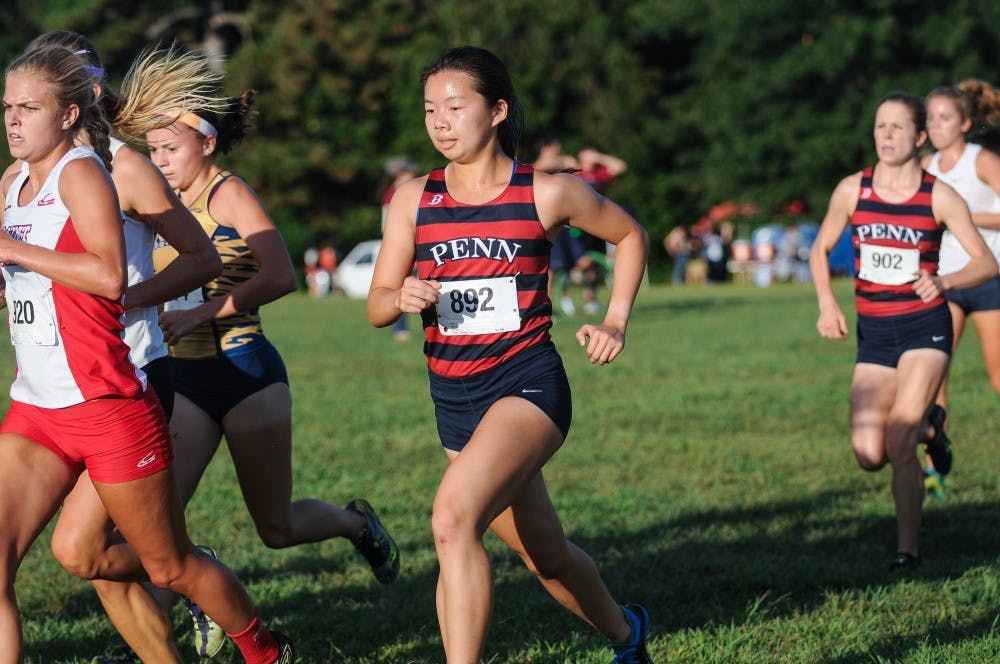
Senior Abby Hong will look to help lead Penn women's cross country to its first Ivy League championship in 26 years.
Credit: Ilana WurmanSports journalism is prone to hyperbole. Players, coaches, a single performance, and even whole teams are too often prematurely bestowed the title of the “greatest of all time.”
But, make no mistake: this Friday, at the Ivy League Heptagonal Championships, has the potential to be the greatest, most successful day in the history of the University of Pennsylvania’s cross country program.
While the men’s team snapped its notorious 43-year championship drought last season, the women extended their own drought to 26 years. Judging by both of the team’s performances this season, the unprecedented — a season where both the men and women win Heps — is wholly plausible.
The team will need to carry its momentum, confidence and hunger to get this done.
The momentum?
In the first triad of local, lower-stakes meets — the Blue/Gold Classic, the Main Line Invitational and the Paul Short Run — the Quakers utterly dominated. Then, earlier this month, the Red and Blue split up, with the top-seven from each side traveling to Wisconsin to compete against some of the finest teams in the nation, and the remaining Quakers going to Princeton to race against local foes.
Coach Steve Dolan carefully designed the season in this in order with the intent of getting the best performances when it matters most.
“We try to set the season up as a building process. Our goal is to grow and learn every two weeks,” said the sixth year coach. “We increased in distance and intensity as the season went along… in the hopes that this sets us up for our best races now, in the championships season.”
Check.
The confidence?
Over the course of these competitions, the Quakers have crossed paths with a number of Ivy League rivals. The men have yet to finish below a fellow Ivy League team; the women have been edged out a few times, but most notably finished above defending Heps champions Harvard in Wisconsin.
Men's senior cross country runner Chris Luciano pointed out that the meet at Wisconsin was likely the most important for both teams, preparing them for the big stage and tough competition.
“It really showed us how to race and how to handle the pressure of those big situations, but it also how to close a race properly,” the captain said. “Going from a meet with 200-plus people in it, down to a meet with about 90 for the Ivy League Championships — it’s a different feel, but if you can execute in those big, high-pressure meets, then a meet like the Ivy League Championships is a lot different.”
Abby Hong, senior captain for the women’s team, felt that the Paul Short Invitational showed the team what it was capable of.
“Paul Short was really a big meet for everyone. I think it was a step forward in everyone’s confidence,” she said. “I think pretty much everyone [had personal records] by at least 30 seconds or more against their time on the same course last year. That was really huge for everyone seeing that the training’s working and that everyone’s improving a lot over last year.”
Check.
The hunger?
Chris will take this one.
“We’ve had this week circled on our calendar since we ran [in Heps] last year.”
Check, check and check.
The Daily Pennsylvanian is an independent, student-run newspaper. Please consider making a donation to support the coverage that shapes the University. Your generosity ensures a future of strong journalism at Penn.
Donate







